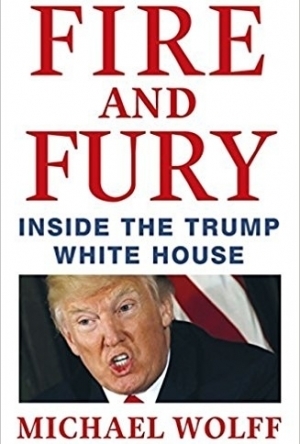
The Colour of Murder
Book
WITH AN INTRODUCTION BY MARTIN EDWARDS 'One of our most ingenious and stylish home-grown crime...
Fiction Historical Mystery Thriller
Suswatibasu (1703 KP) rated Fire and Fury: Inside the Trump White House in Books
Jan 10, 2018
Wolff seeks to fill in the gaps between the various tweets and public appearances made by the U.S. president during the last 13 months, the rash decisions and the thinking behind the bizarre rants. But more than anything, this book seems to explain the Trump brand, and everyone who has become a prime role in marketing it, especially Trump's ex-right hand man Steve Bannon and his family Ivanka and husband Jared Kushner. Their position is explained to be the 'puppet masters', in which unlike any other U.S. government - policies are dictated and "trickled upwards".
In this, Trump is described as 'post-literate', unable to read or concentrate on anything that doesn't interest him, petulant like a child, and disturbingly vacuous. This is less shocking than expected. However, the claims made in the book range from covert connections with the Russians ahead of the elections in great detail, to 'allowing' former head of the FBI, James Comey, to stay in power so that would did not investigate internal affairs - allegedly confirmed by Bannon.
Other less explosive statements include Trump's inner circle reportedly saying how ridiculously stupid he is, which he has recently refuted by saying he is a "stable genius". Overall, an incredibly readable book mostly corroborating what liberals and non-Trump supporters believe.
Awix (3310 KP) rated War of the Worlds: Global Dispatches in Books
Feb 3, 2020
A bit of a mixed bag, to be honest: some of the stories just restage elements of Wells with a different backdrop, others treat the Martians as a backdrop for more introspective tales, still others indulge in literary pastiche. Unlikely juxtapositions and in-jokes abound - Rudyard Kipling meets Gandhi, Tolstoy meets Stalin, Samuel Clemens (d. 1910) makes reference to John Christopher (b. 1922). The best stories are mostly the ones which recognise the political/satirical subtext powering the Wells novel and attempt to do something similar - so Barbara Hambly's story concerns British imperialism in India, and the effect of the Martians on the situation there, while another looks at the consequences for pre-revolutionary Russia. That said, Connie Willis' Hugo-winning contribution sends the whole conceit of the novel up with a predictable mixture of tongue-in-cheek drollery and sheer absurd silliness, as the unlikely effect of a Martian encounter on the poetry of Emily Dickinson is revealed (especially considering Dickinson died twelve years before the coming of the Martians). The good stories are very good indeed, the less good ones merely a bit tedious. A worthy and worthwhile tribute to the original novel.
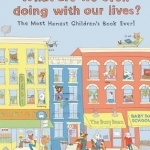
What are We Even Doing with Our Lives?: The Most Honest Children's Book of All Time
Chelsea Marshall and Mary Dauterman
Book
In this a charming, satirical "children's" book, BuzzFeed's lead animal editor and an acclaimed art...
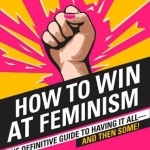
How to Win at Feminism: The Definitive Guide to Having it All-and Then Some!
Book
'People say women can't be funny. WRONG...I love Reductress.' -Sam Bain, co-creator of Peep Show The...
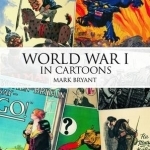
WWI in Cartoons
Book
In an age before TV and radio the impact and importance of cartoon art was immense, especially when...
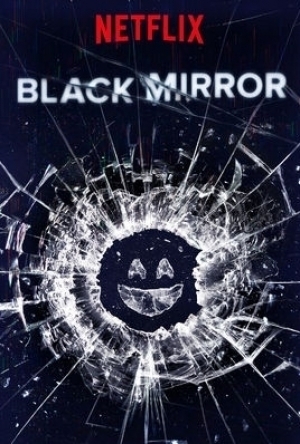
Black Mirror - Season 3
TV Season
Black Mirror is a British science fictiontelevision anthology series created by Charlie...
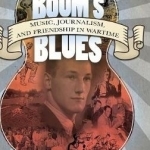
Boom's Blues: Music, Journalism, and Friendship in Wartime
Book
Boom's Blues stands as both a remarkable biography of J. Frank G.Boom (1920-1953) and a recovery of...
Lottie disney bookworm (1056 KP) rated Trying to Live Happily Ever After in Books
Oct 8, 2019
I was very intrigued by the concept of Trying to Live Happily Ever After: bringing fairytales into the modern age is right up my street and, on the whole, Clive Lilwall did not disappoint.
With 17 short stories in total I must admit I did not enjoy every tale.
Cinderella, in my opinion, was just as vapid as her stepsisters and it felt like her owning an old model of a mobile phone justified her to get "the prince". Granted, this may have been Lilwall's aim to show how we associate technology with social standing. However, I would have appreciated a stronger role model as opposed to the slightly kinder but still materialistic Cindy we received.
Unfortunately some of the fables were also lost on me but that may be because I am not familiar with the originals.
Nevertheless, some of Lilwall's tales will possibly stay with me forever. Red's granny getting saucy under a wolf skin; Hansel and Gretal getting fat and baked in a whole new way and, of course, the blunt, shameless, no-holds-barred adaptation of The Emperor's New Clothes, starring a certain "president".
The writing is overly simplistic at times but this only highlights the roots of these tales as stories and fables.
The writing does not need to be complex when human actions and consequences are under the spotlight in such a humorous, satirical and thought provoking manner.
These are not the fairy tales you remember, they're not even revolting-rhymes-sort-of-for-kids. Not in the slightest. You have been warned.

Zed
Book
A blistering, Satirical Novel about life under a global media and tech corporation that knows...
